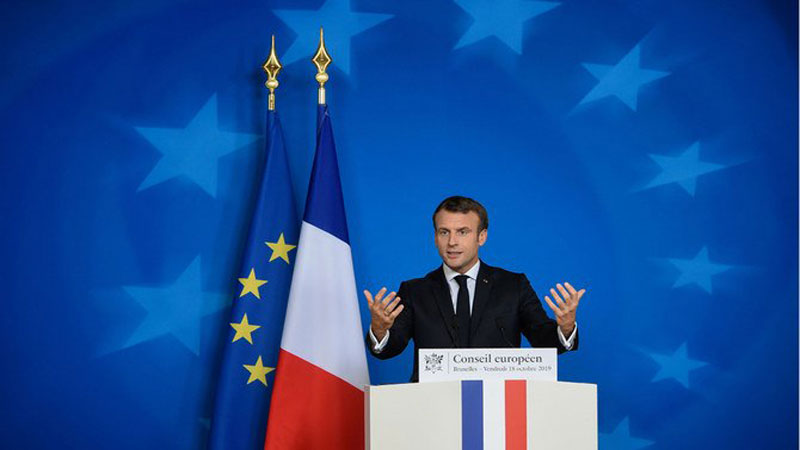PARIS (Reuters) – France’s president on Monday accused Turkey of massively importing jihadists into Libya, labeling Ankara’s intervention “criminal” and he lambasted Russian President Vladimir Putin’s ambivalence towards his country’s mercenaries operating in the North African state.© Reuters/POOL German Chancellor Angela Merkel and French President Emmanuel Macron meet at Meseberg castle
Ties between NATO allies France and Turkey have soured in recent weeks over Libya, Northern Syria and drilling in the eastern Mediterranean.
Turkey has intervened decisively in recent weeks in Libya, providing air support, weapons and allied fighters from Syria to help the internationally recognised government based in Tripoli repel a year-long assault by eastern military leader Khalifa Haftar.
“I think it’s a historic and criminal responsibility for a country which claims to be a NATO member,” French President Emmanuel Macron said.
Without providing any evidence on the nature of the fighters, he said Turkey was “massively importing” jihadists from Syria.
Paris has been accused of supporting Haftar politically, having previously given him military assistance to fight Islamist militants. France denies backing Haftar but has stopped short of rebuking his allies, especially the United Arab Emirates (UAE), which has also been singled out by the United Nations for violating an arms embargo.
Haftar’s Libyan National Army (LNA) is backed by the UAE, Egypt and Russia. In recent weeks, French officials have repeatedly said that Turkey’s intervention was encouraging Russia to gain a greater foothold in Libya.
Libya’s National Oil Corporation said on Friday Russian mercenaries had entered the Sharara oilfield. A United Nations report in May said Russian private military contractor Wagner Group had up to 1,200 people deployed in Libya.
Macron spoke to Putin on Friday, but stopped short of denouncing Moscow as he has with Ankara. He said the two leaders agreed to work towards a common goal of a ceasefire.
On Monday, Macron said Putin had told him that private contractors did not represent Russia.
“I told him of my very clear condemnation of the actions which are carried out by the Wagner force… he plays on this ambivalence.”
(Reporting by Michel Rose; Writing by John Irish; Editing by Chris Reese and Marguerita Choy)



